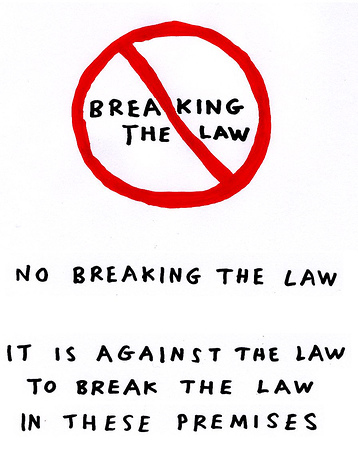- This topic is empty.
-
AuthorPosts
-
-
October 25, 2025 at 3:15 am #10895
Kris Marker
KeymasterWe post news and comment on federal criminal justice issues, focused primarily on trial and post-conviction matters, legislative initiatives, and sentencing issues.

IT WASN’T BRAIN SURGERY…
 Nita Patel operated companies offering mobile diagnostic test services at a physician’s office. To pay for the services, Medicare required a licensed physician on staff to sign off on the tests.
Nita Patel operated companies offering mobile diagnostic test services at a physician’s office. To pay for the services, Medicare required a licensed physician on staff to sign off on the tests.When applying to Medicare for approval to do one kind of neurologic diagnostic testing, Nita’s husband falsely represented that a licensed neurologist would supervise the tests. Based on the representation, Medicare approved the companies as providers of the specialized test. The companies started testing with one of the owners – who was not a licensed doctor – forging a physician’s signature on the tests.
The companies made over $4 million from the scheme.
People who pull such scams shouldn’t. If they do, they should keep their employees happy. A disgruntled Patel worker lodged a qui tam claim against the companies (a civil action in which, if the government wins a judgment, the person bringing the action gets a monetary reward).
The government looked at the claim and smelled a rat. It then indicted the Patels. A day after the husband and wife pled guilty in 2016, the Government took over the qui tam action from the employee, asserting a False Claims Act cause of action.
There’s a problem with guilty pleas beyond the obvious prison, fines, forfeitures and reputational harm. Such a plea can be used against the defendant in a civil action. The Patels’ guilty pleas pretty much made their liability in the qui tam action ‘game, set and match.’
Nita filed a 28 USC § 2255 motion, claiming her lawyer rendered ineffective assistance because he never told her that her guilty plea could be used against her in a False Claims Act lawsuit. Comparing her case to Padilla v. Kentucky – a 2009 Supreme Court decision holding that defense attorneys have a duty to advise their defendant-clients of the immigration consequences of a guilty plea – Nita argued that counsel had a duty to advise her of all collateral consequences of pleading guilty, including the risk of civil liability.
 C’mon, people. The notion that if you rip off the government, you might be forced to pay the government back is not such a hard idea to wrap your head around. Likewise, if you swear under oath that you committed a crime in doing so – necessary if you’re pleading guilty – you shouldn’t be shocked if another court relies on that admission.
C’mon, people. The notion that if you rip off the government, you might be forced to pay the government back is not such a hard idea to wrap your head around. Likewise, if you swear under oath that you committed a crime in doing so – necessary if you’re pleading guilty – you shouldn’t be shocked if another court relies on that admission.Last week, the 3rd Circuit ruled against her.
The 3rd held that even though Nita had finished her prison sentence and supervised release term, she still met § 2255’s “in custody” requirement for bringing a motion because she faced substantial collateral civil consequences from her conviction.
That hardly mattered, however, because the Circuit held that Padilla does not address whether the “distinction between direct and collateral consequences [should] define the scope of constitutionally ‘reasonable professional assistance’ required under Strickland.” Rather, deportation stands alone among non-criminal consequences requiring proper attorney advice as a matter of the 6th Amendment.
 It probably would have been a good idea for defense counsel to talk about civil liability flowing from admitting criminal guilt to a $4 million scam. But counsel’s failure to do so was not ineffective assistance under the 6thAmendment.
It probably would have been a good idea for defense counsel to talk about civil liability flowing from admitting criminal guilt to a $4 million scam. But counsel’s failure to do so was not ineffective assistance under the 6thAmendment.Patel v. United States, Case No. 23-2418, 2025 U.S. App. LEXIS 27085 (3d Cir. October 17, 2025)
~ Thomas L. Root

-
-
AuthorPosts
- You must be logged in to reply to this topic.